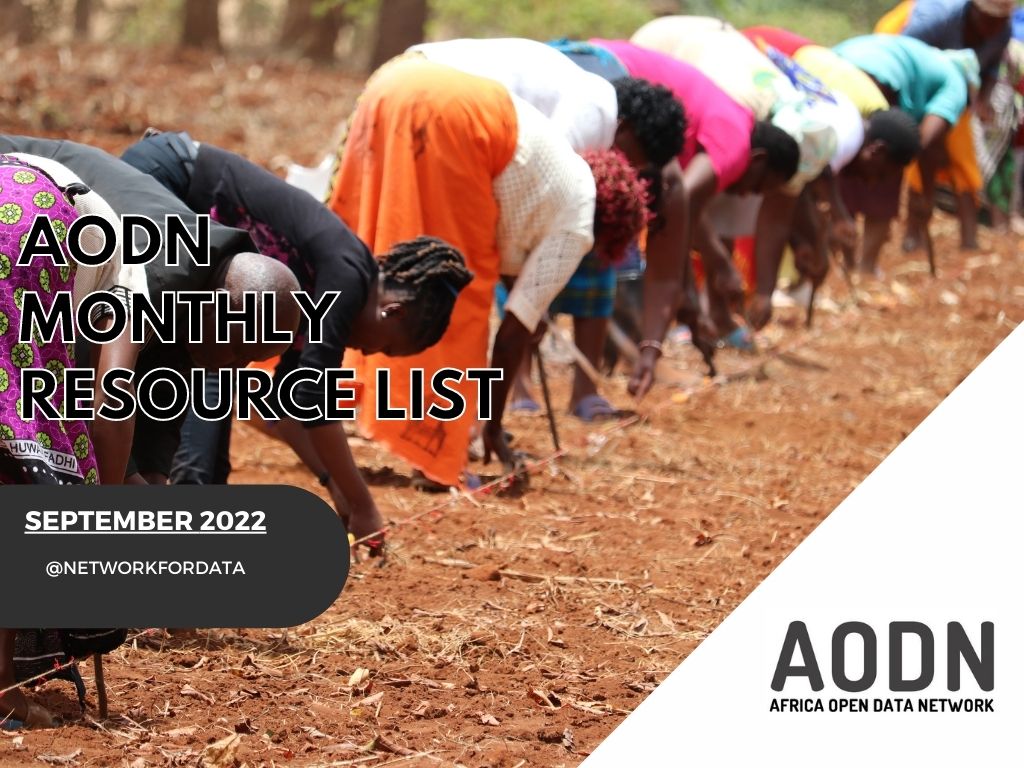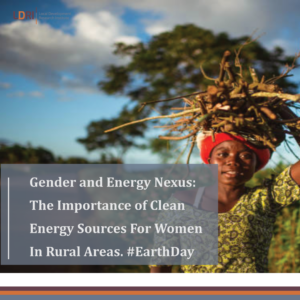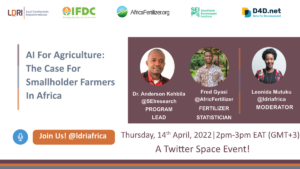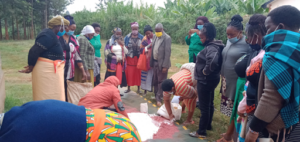![]()
September 2022 Monthly Resource List

The monthly resource list for September 2022 puts together content including a reading list, avenues for capacity building, and events from different stakeholders across the globe on the use of open data for better service delivery in sectors such as Governance, Gender, Agriculture, Education, and Health.
-
What We Are Reading This Month
Overcoming Data Graveyards In Official Statistics: Catalyzing Uptake And Use
Once produced, data may live forever, but far too often, the data produced are not what data users are looking for or users lack the awareness or technical skill to use the data. As a result, data fall into data graveyards (Custer, 2017) where they go unutilized and prevent evidence-informed policies from being made. This is dangerous, particularly at a time when intersecting crises like the COVID-19 pandemic, climate change, and energy and food insecurity put a premium on decision-making that incorporates the best data. In addition, public sector producers of data, who do so using public funds, need evidence of the use of their data to justify investments in data. Download The Report.
Feminism & AI – A Collective Perspective from the Global South
On Tuesday, 16 August, a consultative workshop was held on Feminism and AI as part of the Global Index on Responsible AI (Global Index) project. The consultation was hosted by Research ICT Africa (RIA) and supported by the Data for Development Network (D4D.net), with the participation of over 80 people from around the globe. The session was conducted in English, with translation in Spanish and French to enhance the accessibility of the session to a wider audience. Dr Kelly Stone, Senior Consultant on Capacity Development and Co-Creative Methodologies for the Global Index, and Nokuthula Olorunju, Research Fellow at Research ICT Africa hosted the session. The workshop was intended to foster a collective construction of what Feminist AI means for the Global South; and to reflect on the relevance and utility of the Global Index for advancing feminist-led initiatives in Africa, India, and Latin America. Read More
Gender Data Can Transform Education
Data on the gendered impacts of education has always been scarce, but during the pandemic, progress on gender data systems has eroded. A Data2X and Open Data Watch study of 25 countries shows that currently 42 percent of education data is missing. There is not enough reliable disaggregated data on school enrollment, participation and graduation to ensure that girl’s voices are central in newly created education solutions. Read More
GDB findings on AI and data protection: what can be explored and what is next
Data ecosystems are fluid, changing and evolving. The place that data has in different spheres of society also changes through time. In the past 15 years the studies and debates around the impact on digitalization and datafication in everyday life grew all around the world as practices were also evolving. Along with those new changes and initiatives, the demands towards governments arose. Some of them focused on increasing the benefits of new data created inside governmental agencies and spreading them to encourage a wider participation through data openness initiatives. In contrast, some other demands were focused around the question: how can citizens be protected in their privacy in this new digitalized era? Read More
Broken Links: Open Data to Advance Accountability and Combat Corruption
Broken Links: Open Data to Advance Accountability and Combat Corruption offers an overview of the state of open data against political corruption in Open Government Partnership (OGP) countries. Using new data from the Global Data Barometer, the report explores trends across nine policy areas, identifies areas for improvement, and provides recommendations for future OGP commitments. Read The Report
Is Africa on track to achieve the Sustainable Development Goals by 2030?
Africa has recorded progress on many of the 17 Sustainable Development Goals since 2000; however, the current pace of progress has been insufficient to achieve the Goals by 2030.In the 2030 Agenda, Member States recognized many challenges to sustainable development, including the fact that billions of citizens continue to live in poverty and are denied a life of dignity; rising inequalities within and among countries; enormous disparities of opportunity, wealth and power; gender inequality, unemployment, in particular youth unemployment; the fact that global health threats, more frequent and intense natural disasters, spiralling conflict, violent extremism, terrorism and related humanitarian crises and forced displacement threaten to reverse much of the development progress made in recent decades. The present report describes the status of Africa in its implementation of the 2030 Agenda and a projection of where the region and its subregions will likely be in 2030. Download The Report
The IMF Puts Gender Data at the Forefront of Their First Gender Strategy
The International Monetary Fund (IMF) has taken a major step towards incorporating gender concerns in its dialogue with countries, underscoring the importance of gender data as a first and essential pillar in a newly released Gender Mainstreaming Strategy. The strategy is an important model for future investment in gender-disaggregated data across the international community — promoting economic growth and resilience for women, their families, and their communities. This strategy comes at a crucial time: next year marks the midpoint toward achieving the Global Acceleration Plan for Gender Equality and the halfway point in the 2030 Agenda. Read More
-
Events
Data Governance And AI 20th, October
Privacy Symposium Africa 2nd-4th November
-
Tools




